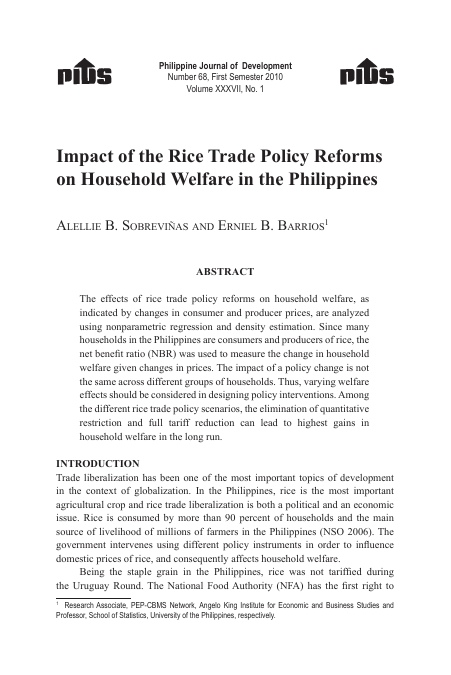Abstract
The effects of rice trade policy reforms on household welfare, as indicated by changes in consumer and producer prices, are analyzed using nonparametric regression and density estimation. Since many households in the Philippines are consumers and producers of rice, the net benefit ratio was used to measure the change in household welfare given changes in prices. The impact of a policy change is not the same across different groups of households. Thus, varying welfare effects should be considered in designing policy interventions. Among the different rice trade policy scenarios, the elimination of quantitative restriction and full tariff reduction can lead to highest gains in household welfare in the long run.
Full Issue
SHARE
